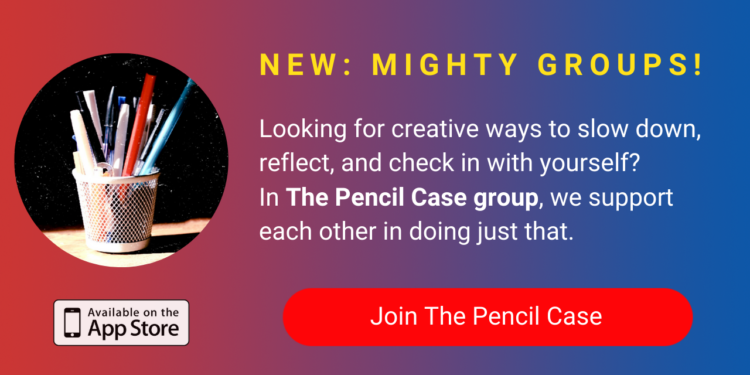The Church Needs to Learn How to 'Co-Suffer' With Hurting People
The Church doesn’t know how to “co-suffer” with hurting people. If you’re a church leader or a congregant who wants to do better, start here.
But before I go too far, let’s look at the story of Jacob.
In the well-known biblical account of Jacob wrestling with God, it is Jacob’s struggle which reveals his true identity. I love the way Pete Enns and Jared Byas summarize this story in Genesis for Normal People:
Jacob finds himself in what is surely one of the oddest and seemingly most random episodes in Genesis. He has an all-night wrestling match with ‘a man,’ or at least that is what we are told at first. Jacob is apparently quite a physical stud, and the ‘man,’ seeing that he is not able to subdue Jacob, disables him by touching his hip socket. Then he adds, ‘Let me go; it is almost daybreak.’
Is this mysterious figure a vampire, or just tired? This episode is puzzling. A man attacks Jacob at night, can’t overpower him, yet is able to knock Jacob’s hip joint out of whack with one touch. What is happening here? But Jacob appears to know this is not just a normal fight. He tells the man he will not let go unless he blesses him. The man agrees and blesses Jacob by changing his name to ‘Israel,’ which means, ‘He strives with God.’
The very name of God’s people is a window into things to come. In their very name, the Israelites make plain and public that they see themselves as a people that struggle with God. That struggle will take on many dimensions, for example: Job’s struggles with God’s justice; Qoheleth’s struggle with God’s unreliability (Ecclesiastes); the many psalmists who wonder out loud, ‘Where is God when you need him?’ This is not a people who see themselves as triumphant, tops on the food chain, but as a wandering, wondering people who — to use the vernacular of our day — struggle with their faith.
I’ve been wrestling with God — and the Bible — for a very long time, especially because of the massive impact toxic, fear-based theology has had on my mental health. Just like Monica Coleman, in her provocative memoir, toxic theology made me believe, “I had to look perfect on the outside, even though I knew that inside I was not. It was a two-ness that fed into itself.” After years of wrestling with the Bible, the Church and my own personal faith, I’ve begun to see that the opposite is true, too: a theology rooted in love (expressed in the safety and belonging of a Christian community) also has a major impact on mental health.
I’m not a theologian, my expertise comes only from personal suffering. But it seems to me that theology — at least the Western version of evangelical Christianity I’ve been steeped in — is as much about our views of self as it is our study of God. To say that another way: what we believe about God strongly influences what we believe about ourselves, and vice versa.
For the first 30s years of my life, I believed some pretty toxic stuff about the nature of God and the character of humanity. Fear, shame and guilt were the cornerstones of our brand of religion. We said things like, “God is love,” but as soon as a newcomer placed both feet through the church doors, we started emphasizing just how rotten we all are.
Plays like the once-popular, “Heaven’s Gates, Hell’s Flames,” were intended to put a “holy fear” in us, but those kinds of tactics only further drove a wedge of shame and guilt between us and this supposedly “Good God.”
It’s like an abusive marriage. The abused spouse continues to return to the abuser because they haven’t known anything else; they think abuse is normal. They can’t possibly imagine freedom because fear and a sense of worthlessness are their constant companions. It’s the same way with toxic churches and fear-based theology. We keep going back, hoping we won’t screw up again and that somehow we’ll learn a new trick to garner the approval of church leadership, which we wrongly internalize as the love and acceptance of God.
So many of the sages of our faith communities come from the same basic demographic: they’re white, they’re straight and they’re male. And there’s nothing wrong with being those things. But what about the vast majority of people who don’t fit that description? When we tell the women to “go home” and refuse to listen to the rage of people of color, the frustrations of the disabled, the questions of the young and just keep putting up barriers against our brothers and sisters who are LGBTQIA+, why wouldn’t they also infer that God doesn’t care about them either?
“While some do theology from the perches of power and privilege, others of us do theology as a form of survival. Never at one point during my short twenty-five years… of thinking about and reflecting upon God, Scripture, Church, or Life have I not wrestled with how these realities intersect with my own lived experience.” — Rev. Broderick Greer
If the very communities who boldly proclaim the name of Jesus actually just mean, “us four and no more,” why wouldn’t people begin to believe that if their story doesn’t matter to the church, their life also doesn’t matter to God? The world today is extremely diverse, but you wouldn’t know it by the Stepford Wives version of Christianity we often display on Sunday mornings across America. As a result, many eventually decide to go ahead and end what everyone else seems to already think of as a worthless existence.
This is why I firmly believe the Church of Jesus Christ is culpable in the epidemic of despair we are seeing today. Ann Ahrens explains:
Attitudes within some sectors of evangelicalism toward biblical counseling as a profession and an essential ministry of the church have often been resistant or skeptical in past decades. The crying needs inside and outside the church in the present day demand that all ministries of the church partner together to serve the ‘common good’ of the suffering. Such joint ministry is not an option, but a necessity in current culture.
Each time we Christians refuse entry into our Sunday morning country clubs, we push people further into things like alcoholism, drug addiction and suicide. And Jesus weeps over our modern Jerusalem, calling us “broods of vipers” and “white-washed tombs.” We were called to be light-bearers, but we have become nothing but agents of fear. It is time for the Church to embrace the tension between deep suffering and exuberant joy.
Why is this important?
In “Prophetic Lament“, Soong-Chan Rah says, “There is power in bringing untold stories to light. The freedom to speak about the reality of suffering and death results in a freedom of denial.” So, what if you actually believed that “where two or three gather in my name, there am I with them,” and allowed the Healer to do work you couldn’t possibly imagine, just by the simple power of presence?
So, what can you do?
In a nutshell: be with them.
Responding to a recent survey I posted, “Bob,” a former senior pastor, shared his experience and some hard-won wisdom for church leaders. Bob struggled because, “I felt like I had to put up a good front, demonstrate faith. It didn’t feel safe to share it [my struggles] because of my position, because people wouldn’t understand, and because I was afraid I could even lose my position.”
Bob’s advice for churches who want to get it right:
I wish we could be more honest in the Church. I wish that there was a better understanding that there is far more to mental health issues than just faith or lack of faith, or spiritual warfare. There are chemical components, stress issues, etc. But the Church in general tries to spiritualize it all away and encourage you to just ‘trust God’ and ‘let go and let God.’ Listen. Really listen. Ask probing questions, and don’t be afraid to be up front about the fact that you won’t judge or offer simplistic solutions.
Hear me, church leader: In moments of grief or loss or shame, hurting people need to know there’s not some magic formula to make everything all better, and there’s no way to fast-forward out of pain. There is only the present moment. There is only their broken heart and the one decision that they have to make next. There is only self-compassion and taking things as slow as they need to, and praying to God that they have an empathetic support system around them who will refuse to leave them alone.
We all want to focus on the end, whether we’re the one suffering or the one witnessing the suffering. But there’s not any guaranteed outcome, and promising one encourages people to invest in false hope — a foundation of shifting sand that will eventually cause their one precious house of cards to collapse.
I know that focusing on the “right now” feels insufficient when we are crushed beneath the weight of all that is happening in the world today. In crisis, we want to hear something hopeful or believe in the miraculous or cross our fingers that we’ll wake up from this nightmare. When we are living our own worst-case scenario, it’s tough to stay present in the moment. But remaining here, right now, living through this, is the one thing that keeps a broken heart from shattering into a million tiny pieces. It keeps us breathing. It enables us to take just one small step forward, and to make it to the next moment. And it all starts with the simple act of being present with another human being.
Getty image via Tinnakorn Jorruang


